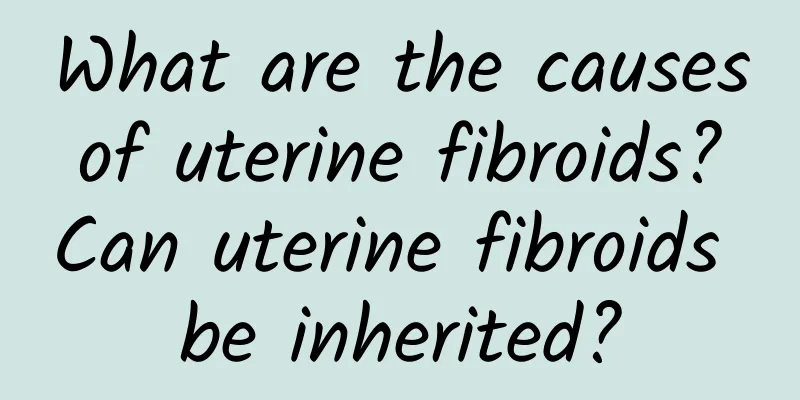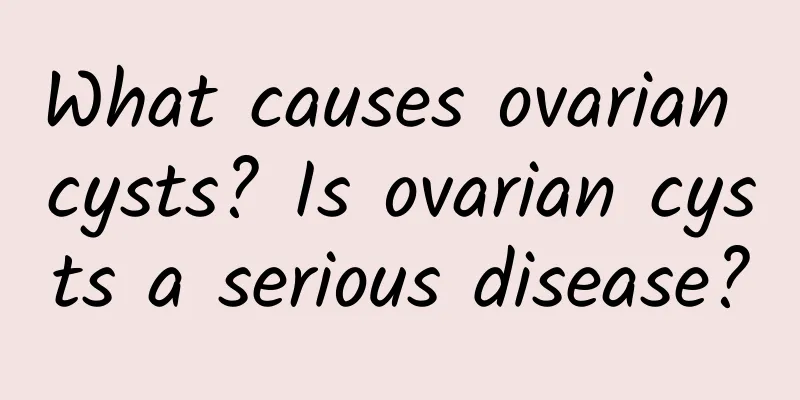What are the causes of uterine fibroids? Can uterine fibroids be inherited?

|
Uterine fibroids are a common benign tumor. Many patients do not detect the disease in the early stages. With age, the disease will gradually worsen and the tumor will grow larger. Women of childbearing age have a high incidence of the disease. Patients should detect the disease immediately because it is an important factor in female infertility. Let us understand its causes. 1. Risk factors: Estrogen, young menarche, nulliparity, late childbearing, obesity and other factors can increase the risk of uterine fibroids. 2. Sex hormones and their receptors: Modern medicine believes that uterine fibroids are a type of hormone-dependent tumor. Estrogen and progesterone synergistically promote the growth of fibroids. The main mechanism may be that estrogen in the follicular phase increases the estrogen receptors on the uterine smooth muscle, and then progesterone in the luteal phase promotes the mitosis of fibroids, thereby stimulating the growth of fibroids. 3. Genetic factors: 25-50% of uterine fibroids have cytogenetic abnormalities, including exchange of chromosome 12 and chromosome 17 fragments, rearrangement of chromosome 12, and deletion of chromosome 7. 4. Cytokines and extracellular mediators: The expression levels of various growth factors and their receptors in uterine fibroids are increased. They are considered to be mediators or effectors of increased ovarian hormones during the formation of uterine fibroids, but the possibility of abnormal primary regulation of one or more growth factors cannot be ruled out. 5. Environmental and lifestyle factors: Bad work and rest schedules and lifestyle habits such as smoking, drinking, unhygienic sex, and environmental pollution can lead to menstrual disorders and increase the possibility of uterine fibroids. From the above introduction, it can be seen that although uterine fibroids are benign tumors, they have a certain hereditary nature, so patients must actively and thoroughly cure the disease. In addition, patients should eat more light food and take more care of the disease after treatment. |
>>: What are the causes of uterine fibroids? What should I do if I have uterine fibroids?
Recommend
Make good use of sugar substitutes to help lose weight. Save 100 calories a day and enjoy slimmer skin.
Many people try their best to lose weight, but to...
Home quarantine and isolation are so boring! Occupational therapists teach you 5 home exercises that can stretch your joints while sitting.
It is not possible to do strenuous exercise durin...
What are the signs of ectopic pregnancy?
Signs of an ectopic pregnancy include insufficien...
Women should pay attention to the causes of dysmenorrhea
Women should be familiar with dysmenorrhea, which...
What are the causes of right ovarian cysts and what foods are suitable for patients
What is the cause of right ovarian cyst? What foo...
Are bananas a panacea for constipation and weight loss? 10 surprising benefits of bananas
When you are constipated, you immediately think o...
What are the dangers of cervical hypertrophy in women?
Most women don't take it seriously when they ...
What causes pelvic effusion and how to treat it
What causes pelvic effusion and how to treat it? ...
What are the consequences of medical abortion? There are 4 major hazards
After a medical abortion, women may experience lo...
A brief discussion on several nursing measures for vulvar leukoplakia
Vulvar leukoplakia is hereditary and very harmful...
No time to lose weight slowly! Two cousins reduced their stomachs and lost 110 kg
I weigh over 100 pounds and suffer from diabetes ...
Treatment of Dysfunctional Uterine Bleeding in Adolescence with Motherwort and Shepherd's Purse
Functional uterine bleeding is a common gynecolog...
What are the early symptoms of habitual miscarriage? Let's learn about it
The occurrence of habitual miscarriage often has ...
Common factors for recurrent pelvic peritonitis
Pelvic peritonitis is a common female disease. Ge...
Can female vaginal infection cause cervical erosion? 4 causes of cervical erosion that you should know
In life, it is very important for women to develo...









